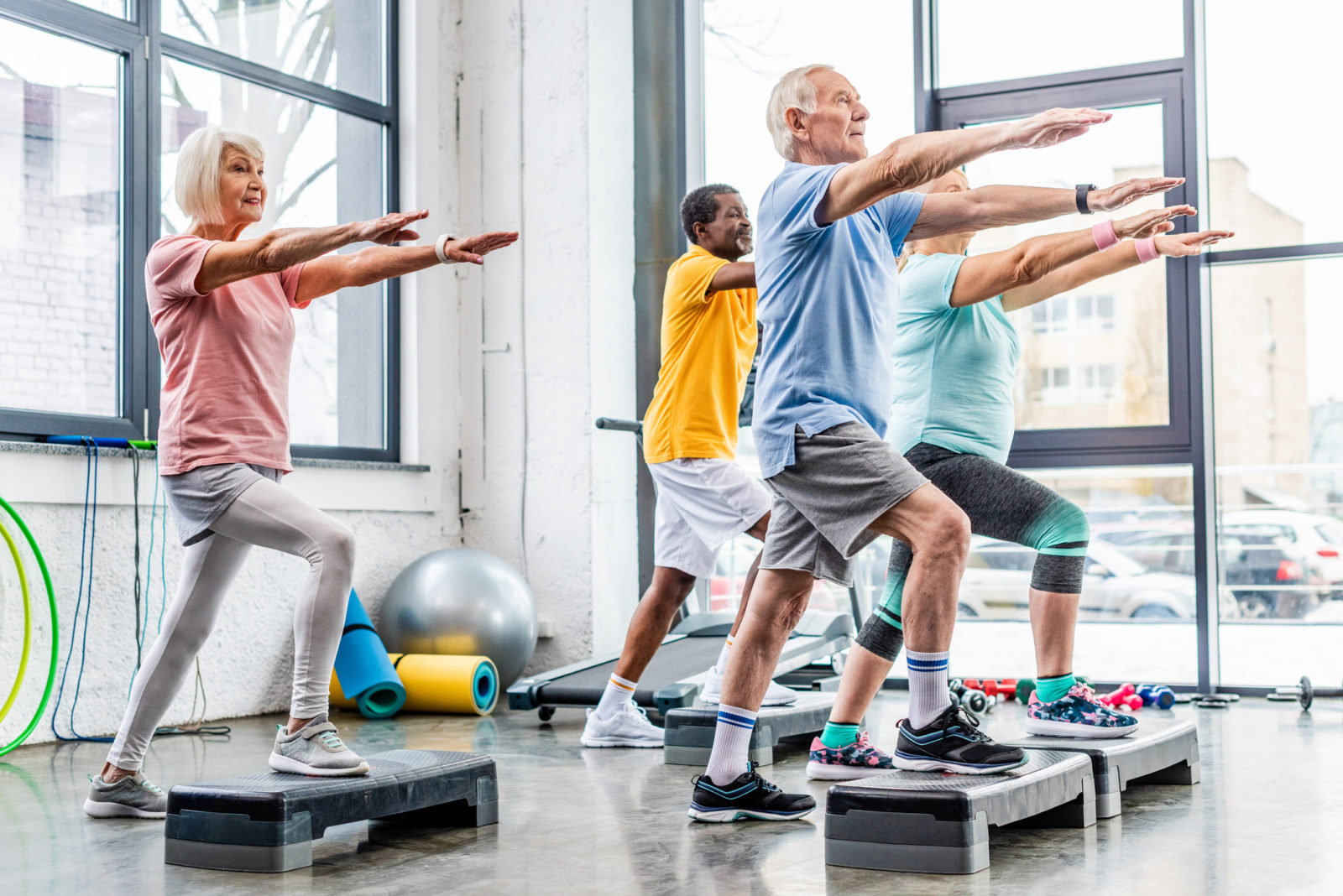Exercise Is a Critical Component in Aging Well

People engaged in the science and art of aging well are beginning to look more closely at extending a person’s health span in addition to their life span. It’s no longer enough to extend one’s life – it’s about extending the quality of life. The famous centenarian George Burns once quipped, “If I knew I was going to live this long, I would have taken better care of myself!” With spring just around the corner, now is the perfect time to start planning on including an exercise routine to your daily activities.
The need for exercise doesn’t decrease as we age
The older you get, the more important exercise becomes. Seniors need to exercise more than their younger counterparts because they are at greater risk for the diseases that exercise can prevent, which include heart disease, diabetes, and stroke, among others. Numerous studies have shown that regular exercise protects the body against chronic diseases, improves mood and lowers your chance of injury.
It’s never too late to start living well
It’s best to start an exercise program as early in life as possible. But research has shown that even when started late in life, exercise provides amazing benefits. British researchers conducted a study of seniors’ activity levels over the course of eight years. They discovered that those who were active and the start of the study and remained so throughout the eight years had the lowest incidents of chronic diseases, memory loss and physical disability. Those who were sedentary at the start of the study and who started an exercise program and sustained it throughout the study did nearly as well, achieving a sevenfold decrease in their risk of becoming ill or frail compared to those who remained inactive throughout the length of the study.
It doesn’t take a lot of effort to reap the benefits
The good news is that even moderate exercise provides benefits. According to Harvard Health Publishing, even as little as one hour of walking or gardening per week can reduce your risk of heart attack, stroke, and death from all causes. One study found that people who did moderate exercise just 15 minutes a day tended to live an average of three years longer than their inactive peers. The American Heart Association recommends that individuals perform at least 150 minutes per week of moderate exercise or 75 minutes per week of vigorous exercise.
Exercise also keeps your brain functioning at its peak
As we discussed in this post, exercise may be able to protect the brain from Alzheimer’s and other forms of dementia. According to the Alzheimer’s Research & Prevention Foundation, physical exercise reduces your risk of developing the disease by 50 percent.
Caregivers can benefit from exercise too
If you’re caring for an elder loved one, don’t forget that following your personal health maintenance routine is also important, as many caregivers tend to let their own needs slide. Maintaining a regular health maintenance program – including getting enough exercise – is essential for your own well-being as well as being able to provide the best possible care.
According to the American Academy of Family Physicians, almost all older people can benefit from increased physical activity. So check with your doctor about starting an exercise routine and start adding more years to your life and life to your years!
![LifeCare Advocates [logo]](https://www.lcadvocates.com/wp-content/uploads/sites/270/2017/11/logo.png)